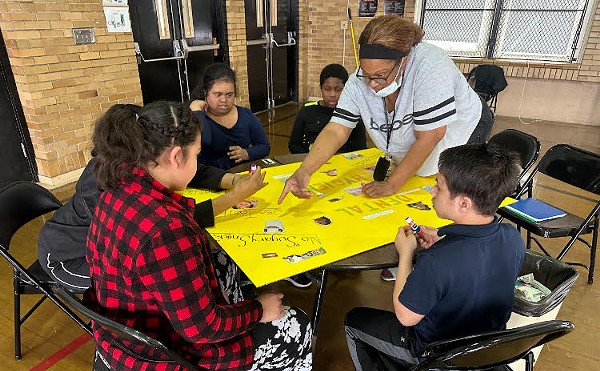If you want a dramatic lesson about money and political campaigns, check out the federal campaign finance reports just filed by Kentucky’s 12 congressional candidates (six incumbents and six challengers).
The reports disclose how much money each candidate raised and spent during the first quarter of 2006, and one interesting angle is to look at who gave. I don’t mean from a partisan or industry angle — I mean from the ordinary person’s perspective.
The Federal Election Commission requires candidates to itemize contributions from individuals who give $200 or more. Anything less isn’t itemized. Those small contributions are aggregated, however, so you can see how much each candidate received that way.
During the first three months of 2006, the 12 congressional candidates raised a total of $2,521,313 in contributions. Of that amount, a mere $128,255 was unitemized — that is, donated by people who gave $199 or less. That’s barely 5 percent of all money raised.
In Louisville’s 3rd Congressional District, only $1,845 of the $540,505 raised by Rep. Anne Northup (R) this quarter came from small dollar, unitemized contributions — a minuscule three-tenths of one percent of money raised. Compare that to her opponents: $26,636 in small donations raised by Andrew Horne (D) and $6,779 by John Yarmuth (D). Democratic challenger James Moore gave himself $1,600 but did not raise other money.
Contrast the small individual contributions to those given by political action committees, the remaining legal option for corporations and groups to give directly to federal campaigns. During the quarter, PACs handed out $908,760 in contributions to these same candidates, accounting for 37 percent of all money raised — more than seven times what small donors gave.
Northern Kentucky’s Rep. Geoff Davis (R) led the group in PAC fundraising, collecting $348,970. Northup accepted $134,600 in PAC money while Horne took $8,100. Neither Yarmuth nor Moore reported PAC donations.
Unfortunately, campaigns are so dependent upon fundraising that challengers often dip into their personal savings to help fund their efforts. Last month, Yarmuth contributed $133,127 of his own money, while Horne added $40,000.
With less than a month until the May 16 Democratic primary, Yarmuth has nearly $300,000 in his campaign bank account, while Horne has $82,000 — not enough for even one week of a modest ad buy on Louisville TV. That costs about $100,000.
Earlier this week, we got the first snapshot of how Democratic voters are viewing this race as Yarmuth released a memo from his pollster Alan Secrest, who surveyed 507 likely Democratic primary voters last month. It showed Yarmuth with 33 percent of the vote, followed by Horne at 10 percent, Burrel Farnsley at 6 percent and Moore at 1 percent. Fifty percent of voters were undecided. Among voters familiar with both candidates, Yarmuth bested Horne by a 42 to 26 margin. Also, Yarmuth was favorably viewed by 73 percent of Democrats tested and unfavorably by 9 percent.
Of course, this was Yarmuth’s internal poll, and the information released was selective and should be weighed accordingly. But it does support the conventional wisdom that this is his race to lose.
Regardless who wins next month’s Democratic congressional primary, he will immediately find himself spending much more time raising money than talking to those already-segmented voters, as the incumbent Northup has already raised, and stashed away, more than $1.6 million.
However, as I wrote in this column two months ago, even well-funded candidates must overcome the ever-growing detachment of voters from conventional forms of communications. With cell phones, TiVo, iPods, satellite radio and the Internet, voters are harder to reach with a broad brush approach. That’s especially true of the younger, tech-savvy crowd.
As a result, a premium must be paid to individual communication, which makes campaigns not only more complicated and segmented but also more expensive, because a candidate can’t afford to simply reduce a TV buy, which remains the best way to reach older voters who are much more likely to turn out on Election Day.
Conventional wisdom tells us Horne can’t overcome Yarmuth’s name recognition and money in the primary, and that Yarmuth can’t overcome Northup’s incumbency and her money in the general election. But as corruption scandals continue to overwhelm the Republican administrations in Washington and Frankfort, and voters demand change, the general is shaping up as anything but conventional. This might be one of those years where the exception becomes the norm.
Mark Nickolas is a former Democratic political consultant and publisher of Kentucky’s most widely read political blog, BluegrassReport.org, which recently won the 2005 Koufax Award for Best State or Local Blog in the country. Contact him at [email protected].





